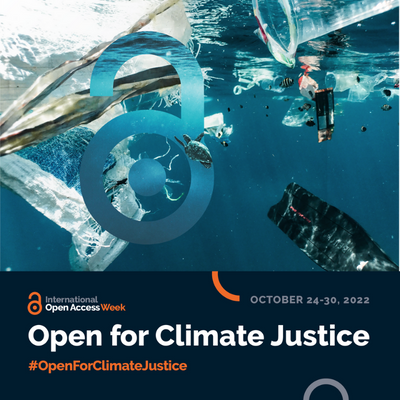Indigenous Data Sovereignty and the Open Access Movement
Location
Online (Zoom)
Event Website
https://oer.unm.edu/events.html
Loading...
Start Date
26-10-2022 12:00 PM
End Date
26-10-2022 1:00 PM
Description
The UNM Health Sciences Library & Informatics Center (HSLIC), in conjunction with HSLIC’s Justice, Equity, and Inclusion Committee, is pleased to host a roundtable-style discussion around the critical concepts that inform the exchange of information related to research by and about Indigenous and Native American communities. Nested within the methodology of Indigenous Data Sovereignty, panelists will highlight best practices and considerations for rights management, governance, sharing, and use of Indigenous data as it relates (and oftentimes conflicts) with the Open Access movement. Dr. Stephanie Russo Carroll (she/her/hers) is Dene/Ahtna, a citizen of the Native Village of Kluti-Kaah in Alaska, and of Sicilian-descent. Based at the University of Arizona (UA), she is Assistant Professor, Public Health and American Indian Studies Graduate Program; Acting Director and Assistant Research Professor, Udall Center for Studies in Public Policy; Associate Director, Native Nations Institute; and Affiliate Faculty in the College of Law. Stephanie’s interdisciplinary research group the Collaboratory for Indigenous Data Governance develops research, policy, and practice innovations for Indigenous Data Sovereignty. Stephanie co-edited the book Indigenous Data Sovereignty and Policy and led the publication of the CARE Principles for Indigenous Data Governance. Stephanie co-founded the US Indigenous Data Sovereignty Network and co-founded and chairs the Global Indigenous Data Alliance (GIDA) and the International Indigenous Data Sovereignty Interest Group at the Research Data Alliance. She Chairs the Indigenous Data Working Group for the IEEE P2890 Recommended Practice for Provenance of Indigenous Peoples' Data. Dr. Debra MacKenzie (she/her) is co-director of the Community Environmental Health Program (developed and co-directed by Dr. Johnnye Lewis). Dr. MacKenzie and Dr. Lewis lead the Navajo Birth Cohort Study, a prospective birth cohort study investigating the impacts of pre-natal and early life exposures to uranium and other co-occurring metals on child health and development. This study is part of the NIH's Environmental influences on Child Health Outcome (ECHO) program. Dr. MacKenzie is also involved with an ongoing clinical trial on Navajo Nation investigating the potential benefits of supplemental zinc for mitigating metals toxicity.
Creative Commons License

This work is licensed under a Creative Commons Attribution 4.0 International License.
Indigenous Data Sovereignty and the Open Access Movement
Online (Zoom)
The UNM Health Sciences Library & Informatics Center (HSLIC), in conjunction with HSLIC’s Justice, Equity, and Inclusion Committee, is pleased to host a roundtable-style discussion around the critical concepts that inform the exchange of information related to research by and about Indigenous and Native American communities. Nested within the methodology of Indigenous Data Sovereignty, panelists will highlight best practices and considerations for rights management, governance, sharing, and use of Indigenous data as it relates (and oftentimes conflicts) with the Open Access movement. Dr. Stephanie Russo Carroll (she/her/hers) is Dene/Ahtna, a citizen of the Native Village of Kluti-Kaah in Alaska, and of Sicilian-descent. Based at the University of Arizona (UA), she is Assistant Professor, Public Health and American Indian Studies Graduate Program; Acting Director and Assistant Research Professor, Udall Center for Studies in Public Policy; Associate Director, Native Nations Institute; and Affiliate Faculty in the College of Law. Stephanie’s interdisciplinary research group the Collaboratory for Indigenous Data Governance develops research, policy, and practice innovations for Indigenous Data Sovereignty. Stephanie co-edited the book Indigenous Data Sovereignty and Policy and led the publication of the CARE Principles for Indigenous Data Governance. Stephanie co-founded the US Indigenous Data Sovereignty Network and co-founded and chairs the Global Indigenous Data Alliance (GIDA) and the International Indigenous Data Sovereignty Interest Group at the Research Data Alliance. She Chairs the Indigenous Data Working Group for the IEEE P2890 Recommended Practice for Provenance of Indigenous Peoples' Data. Dr. Debra MacKenzie (she/her) is co-director of the Community Environmental Health Program (developed and co-directed by Dr. Johnnye Lewis). Dr. MacKenzie and Dr. Lewis lead the Navajo Birth Cohort Study, a prospective birth cohort study investigating the impacts of pre-natal and early life exposures to uranium and other co-occurring metals on child health and development. This study is part of the NIH's Environmental influences on Child Health Outcome (ECHO) program. Dr. MacKenzie is also involved with an ongoing clinical trial on Navajo Nation investigating the potential benefits of supplemental zinc for mitigating metals toxicity.
https://digitalrepository.unm.edu/openaccessweek/2022/all/2

